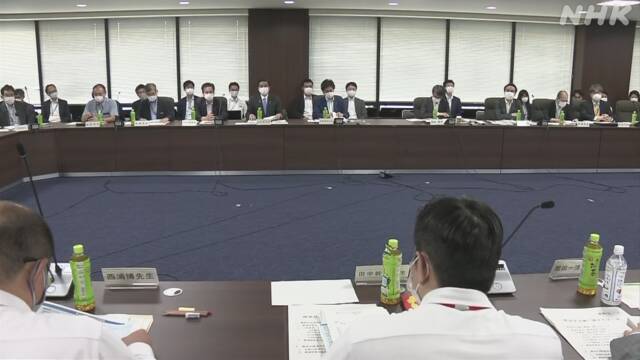An expert meeting of the Ministry of Health, Labor and Welfare was held to advise on measures against the new coronavirus, and the effect of the state of emergency was steadily appearing, saying that the infection situation nationwide was "generally decreasing in areas where infection was spreading". On the other hand, in Okinawa, the number of infected people is still very high, and there is concern that the number of severely ill people will increase.
He also points out that the number of people is already increasing in Tokyo and other areas, and if this trend continues, there is a possibility that the infection will spread again, and measures to control the spread of the infection should be continued.
Expert meetings have shown that the number of people with severe illness and the number of people dying are decreasing in areas where infection has spread nationwide, and the effects of priority measures such as state of emergency and prevention of spread are steadily increasing. On the other hand, in some areas, the number of people is increasing and the rate of decrease in infected people is slowing down, so it is possible that the infection will spread again in the future.
Among the areas where the state of emergency has been declared, especially in Okinawa Prefecture, where the number of infected people has continued to increase rapidly, the number of infected people has started to decrease earlier this month, but the number of infected people per 100,000 people in the last week is still high. The bed usage rate is high at a very high level of over 100 people, and there is concern that the number of seriously ill people will increase in the future.
In addition, although the number of infected people continues to decrease in Hokkaido, the bed usage rate is particularly high in Sapporo, and it is necessary to pay attention to whether the number of people at night will continue to decrease.
In the Tokyo metropolitan area, Tokyo, Saitama, Chiba, and Kanagawa prefectures, the number of infected people is higher than in Kansai, and the rate of decrease is slower. Especially in Tokyo, the number of people increases for 4 consecutive weeks both at night and during the day. However, the increase since the state of emergency was extended has been remarkable, and we are calling for caution, saying that if this trend continues, the infection may spread again.
On the other hand, in Gunma, Ishikawa, and Kumamoto prefectures, where the deadline for priority measures such as prevention of spread is approaching on the 13th of this month, the number of infected people continues to decrease and the bed usage rate is also declining.
Furthermore, regarding vaccination, about 14.5 million people nationwide, mainly the elderly, have received the first vaccination, and it is expected that the progress of vaccination will reduce the severity of the elderly. He emphasizes that measures should be continued in the future, as the rapid increase in the number of infected people may lead to tight medical care.
In addition, the expert meeting pointed out that it is necessary to reinforce the local test for the mutant virus "Delta strain" found in India, and to suppress the spread as much as possible by investigating the infection route.

